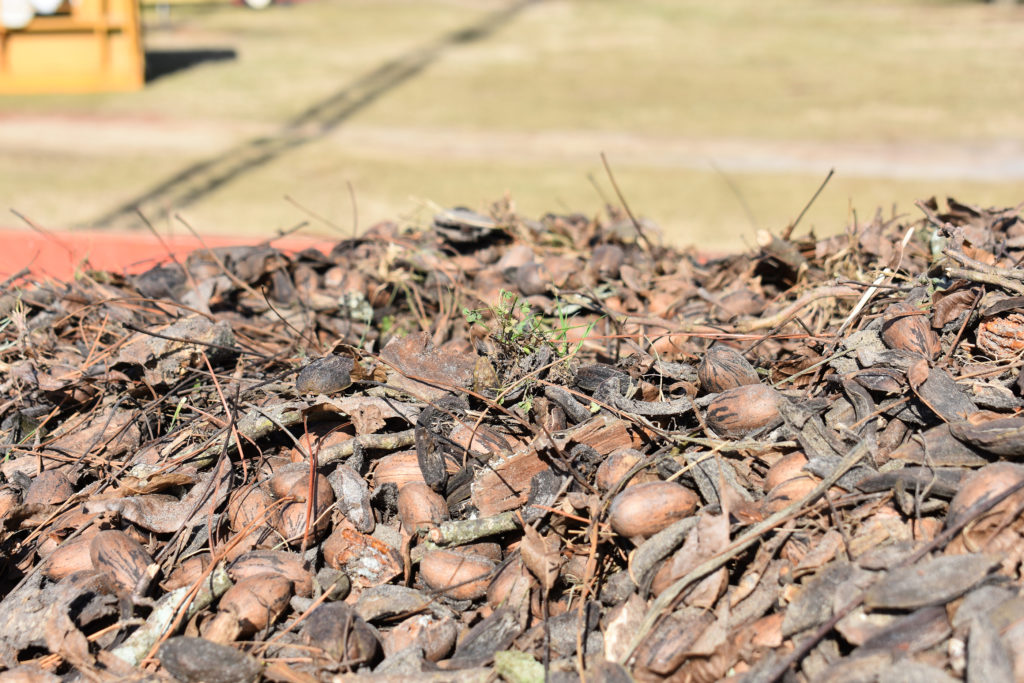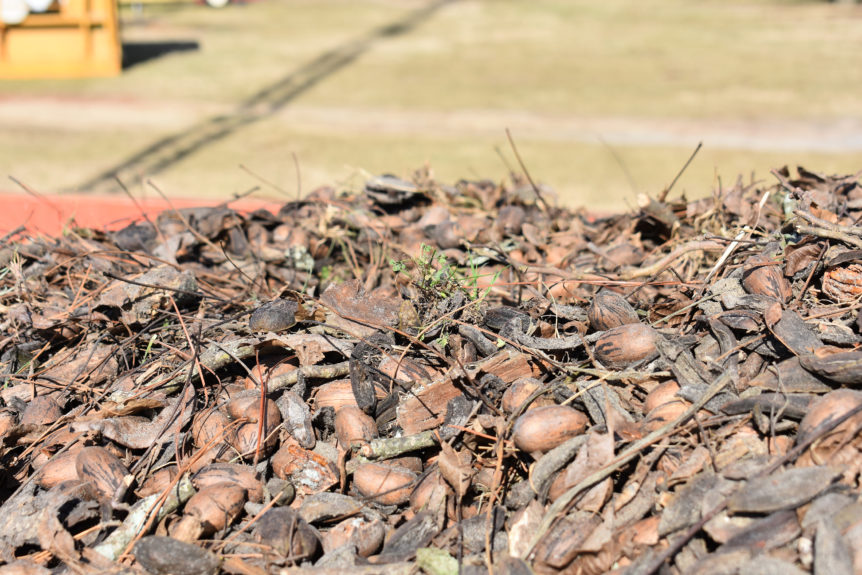
By Maegan Beatty
Southeast pecan growers face an ongoing challenge from a tiny but destructive pest called the pecan nut casebearer. The insect targets young pecan buds and shoots in early spring, usually before the nuts have a chance to develop. If left unmanaged, infestations can severely reduce crop yields and weaken tree health.
The pecan nut casebearer is most damaging in early May, when newly hatched caterpillars feed on young, developing nutlets, often destroying entire clusters before the nuts can mature. Because the larvae can feed on multiple nutlets at once, early protection is critical.
University of Georgia pecan entomologist Apurba Barman speaks on the impacts of the pest and advises growers on how to respond.
“Once the eggs hatch, they start feeding on the nutlets, and since a caterpillar can feed on several nutlets at this stage of nut development, almost all the nutlets in a cluster will be damaged and drop,” Barman said.
Pecan growers in South Georgia have been monitoring pecan nut casebearer activity since early April, but trap data shows that populations vary significantly across different orchards. Experts caution that trap counts alone aren’t enough to determine the risk to crops.
“These counts are just an indication of what the emergence looks like and do not reflect the actual damage to the crop. Therefore, we recommend scouting for the eggs or actual damage to the nuts to assess the impact of the pest,” Barman said.
Scouting’s Importance
Active field scouting remains essential for effective pest management.
To effectively monitor and manage pecan nut casebearer (PNC), growers are advised to use traps in their orchards or collaborate with county agents to install traps in specific areas. Trap data helps determine the optimal timing for insecticide application.
“Based on the trap captures, we can determine the insecticide application window. Research has shown that following this application window based on the trap capture is likely to give optimum control and efficacy of insecticide being applied,” Barman said.
Recommended insecticides like Intrepid, Intrepid Edge and Vantacor are effective, as they offer long-lasting protection against caterpillar pests, including PNC.










